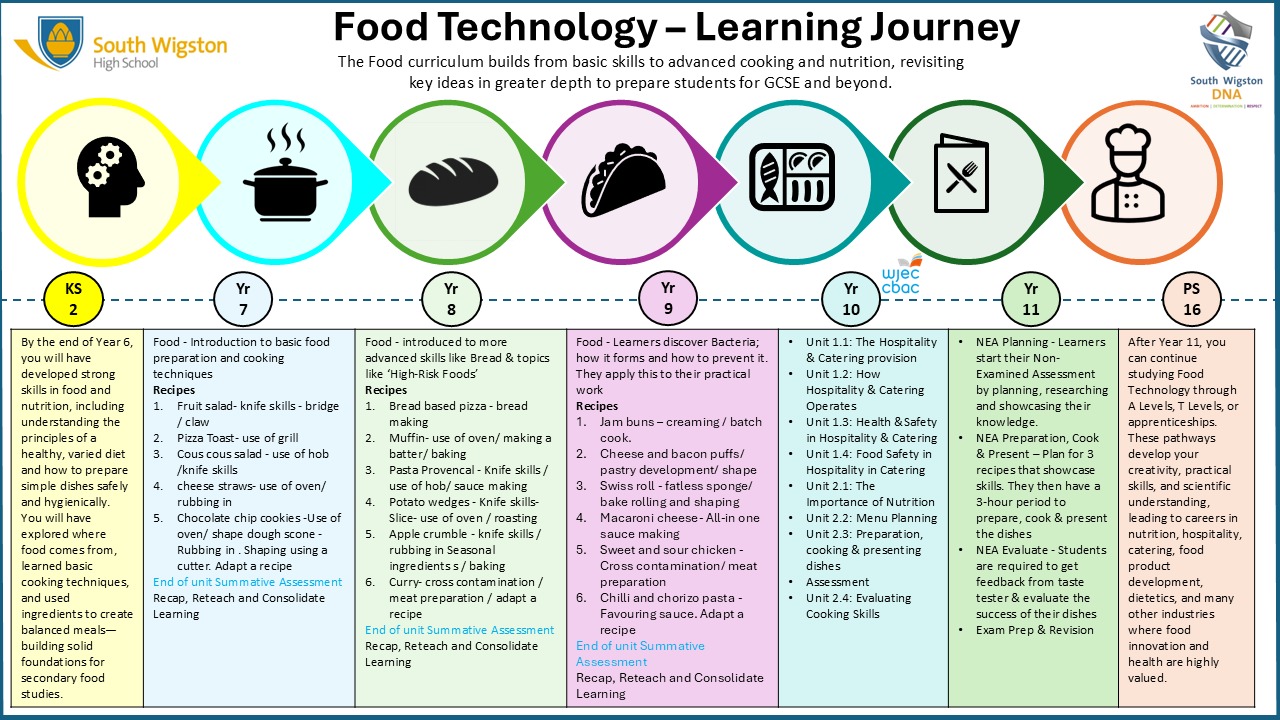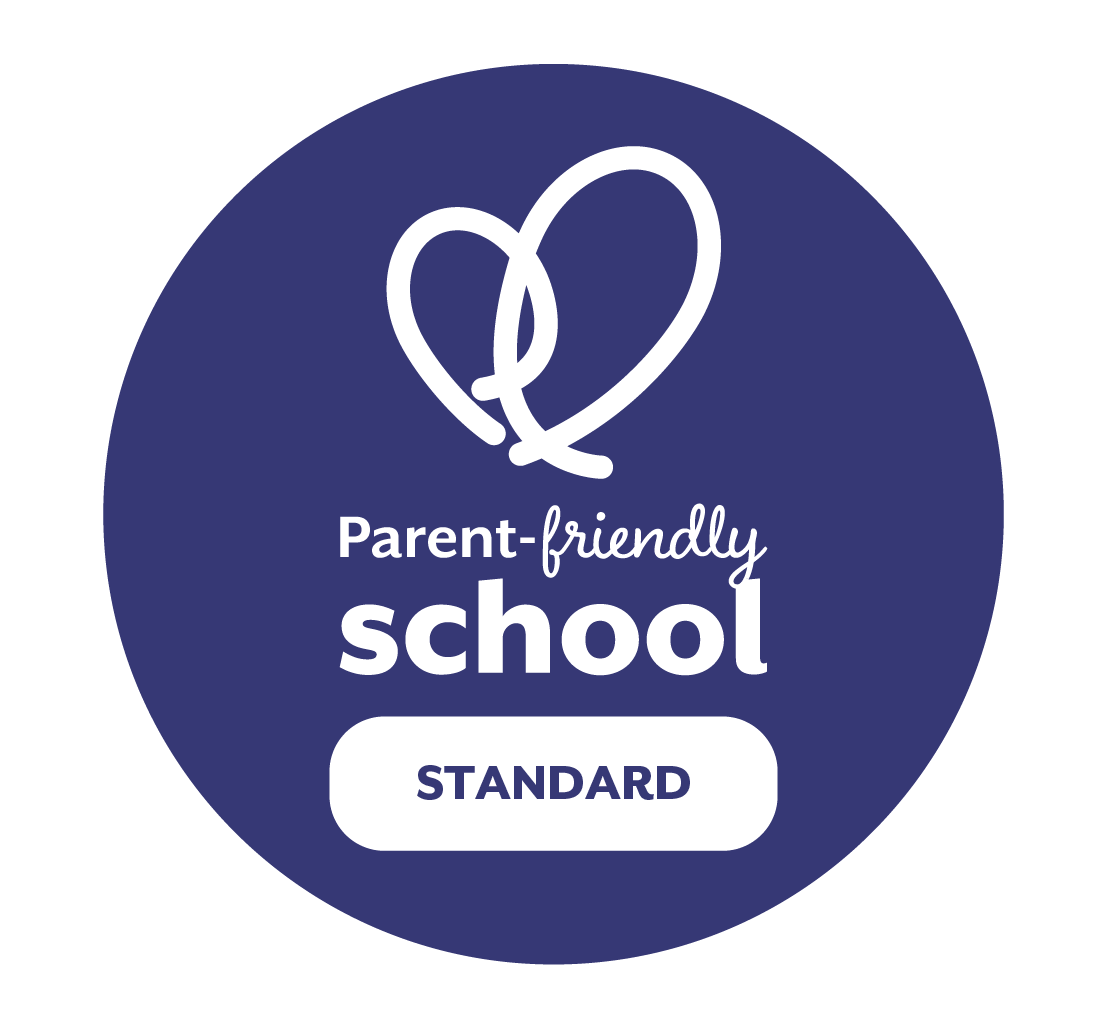Design Technology
Member of staff
Mr B. Cave: Curriculum Lead Design Technology
Mr G. Knight: Teacher of Art & Design Technology
Ms S. Toon: Teacher of Food Technology
Mrs H. Weldon: Art and Design Technician
GCSE Art & Design
The Art and Design department at South Wigston High School aims to provide a curriculum that allows students to be expressive, whilst developing skills in a wide range of different media. This includes fine art, graphic design and textiles. We encourage pupils to explore visual and tactile outcomes whilst communicating their ideas based around a yearly department theme. We encourage and nurture an interest in the arts.
Students work with traditional techniques and materials as well as with new media. We strive to develop confidence, competence, imagination and creativity. Students learn to appreciate and value images and artefacts across times and cultures, and to understand the contexts in which they were made. We encourage students to research a range of historic and contemporary artists from a variety of fields.
Intent
“The details are not the details. They make the design.” – Charles Eames
“To eat is a necessity, but to eat intelligently is an art.” – François de la Rochefoucault
At South Wigston High School, Design and Technology, including Food Preparation and Nutrition, and Hospitality and Catering - aims to inspire all students to be ambitious, creative, and innovative problem-solvers who engage confidently with the designed and made world. Our curriculum invites students to explore, investigate, and design with purpose, showing determination through problem-solving, analysis, and evaluation, while remaining inquisitive about the world they interact with.
Through a broad and inclusive DT offer, students will develop an understanding of the principles of good design and its impact on society, the economy, and the environment. They will work with a variety of materials, ingredients, and technologies, developing respect for health and safety requirements and gaining knowledge of how to improve comfort, aesthetics, functionality, communication, and well-being through creative solutions.
In Food Technology, students will also learn the knowledge and practical skills to prepare, cook, and eat safely, understanding the role food plays in maintaining a healthy, balanced lifestyle. They will explore a wide range of ingredients, cooking techniques, and cuisines from around the world, deepening their awareness of where food comes from, how it is produced, and its cultural significance. Students will engage with the ethics and morals of food production and sale, analysing its impact on people and the planet.
Across all areas of Design and Technology, students will be introduced to influential designers, design movements, culinary innovators, and cultural traditions, using this knowledge to stimulate creativity, challenge perspectives, and broaden horizons. By the end of their journey, our students will be knowledgeable, skilled, and confident creators - ready to apply their learning in further study, future careers, and everyday life.
In Design and Technology our aim is to foster for all students a love of good design, be Our curriculum is underpinned by the school’s core values of Ambition, Determination, and Respect:
Ambition: Learners are encouraged to be creative, developing innovative design ideas and producing recipes using entire homemade products.
Determination: Learners are supported to persevere through practical work, developing their skills in the design workshop and a professional kitchen.
Respect: Learners are taught to be respectful of the surroundings, equipment and each other, especially during practical lessons where health and safety requirements are so important.
The curriculum is designed to build the foundational knowledge and skills required for success in AQA GCSE Design and Technology and Eduqas Hospitality and Catering, with clear progression from KS3 to KS4. It is designed around the requirements of the National Curriculum and the Design and Technology and Hospitality and Catering specifications. It ensures that all learners, regardless of background or ability, can access and succeed.
Implementation
Design and Technology and Food Preparation are taught through a sequenced and inclusive programme of study that develops pupils’ skills in four key learning foci (LFs):
Design
- LF1: Research and generate design ideas
- LF2: Develop and communicate ideas
- LF3: Make high-quality prototypes
- LF4: Evaluation and Improve
Food
- LF1: Understanding Nutrition and Food Groups
- LF2: Food Preparation and Safety
- LF3: Basic Cooking Techniques
- LF4: Evaluation and Improvement
At Key Stage 3, learners:
- Learners follow a 10-week rotation system around all the different disciplines that come under the Design and Technology banner throughout the year. The disciplines are: Resistant Materials, Graphics, Textiles and Food.
- Learners will explore materials and their properties.
- Learners will explore different ingredients and their functional characteristics.
- Learners will develop their designing and practical skills via a range of design and making challenges.
- Learners will explore and delve into industry standards around manufacturing.
- Learners will explore and delve into the work
Assessment is based on the KS3 Design and Technology and Food Grade Descriptors, which use a four-tier model, Emerging, Advancing, Deepening, and Mastering, to track progress and provide clear, supportive feedback. Assessment will run throughout each lesson and at key intervals to check progress.
At Key Stage 4, learners will follow either the AQA GCSE Design and Technology course, building on their KS3 foundation, developing skills in designing, making and evaluating based on a design challenge alongside their understanding and knowledge of the design industry. Or they will follow the Eduqas Level1/2 Hospitality and Catering course, building on their KS3 foundation, developing their practical food preparation and cooking skills alongside their knowledge of the hospitality and catering industry.
- Design and Technology is assessed via a controlled assessment and a written exam both worth 50% of the overall GCSE.
- Hospitality and Catering is assessed via a controlled assessed and a written exam. The exam is worth 40% and the controlled assessment is work 60% of the overall grade.
Impact
By the end of Key Stage 3, learners will be able to:
- analyse a design exploring the good points, the bad points, and the possible improvements.
- understand what a design context and design brief is and can respond to them via the creation of a range of design ideas.
- communicate their ideas through a range of hand drawn and CAD techniques and by 3D modelling.
- identify and explain a range of industry processes and standards.
- identify a range of materials and their source.
- understand the principles of the eatwell guide and how to manage a healthy balanced diet and can demonstrate this through recipe planning, modification and preparation.
- explain how to ensure energy balance.
- identify and explain the food nutrients, what they do for our body and the foods that contain them demonstrated through nutritional analysis of the recipes they create.
- understand the impact of food production on society, the environment and particularly food security.
- understand and know a range of practical cooking skills enabling them to create healthy, safe and enjoyable food.
Our Design and Food curriculum at KS3 ensures learners leaving with life skills preparing students for life outside of education, CORE Powerful knowledge ensuring pupils have a clear understanding of the subject and their core principles ready for GCSE should they choose it. Our curriculum will enthuse and inspire and develop students inquisitive and creative brains.
At Key Stage 4, learners demonstrate increasing independence, creativity, and critical thinking, with some choosing to pursue design and technology or hospitality and catering further in education or as a career. The curriculum not only prepares them for academic success but also equips them with transferable skills for life.
KS3 Design Technology Progress Statements
ks3 design progress statements.pdf
Your Design Technology Learning Journey through South Wigston

KS3 Food Technology Progress Statements
ks3 food tech progress statements .pdf
Your Food Technology Learning Journey through South Wigston








 ↑
↑

